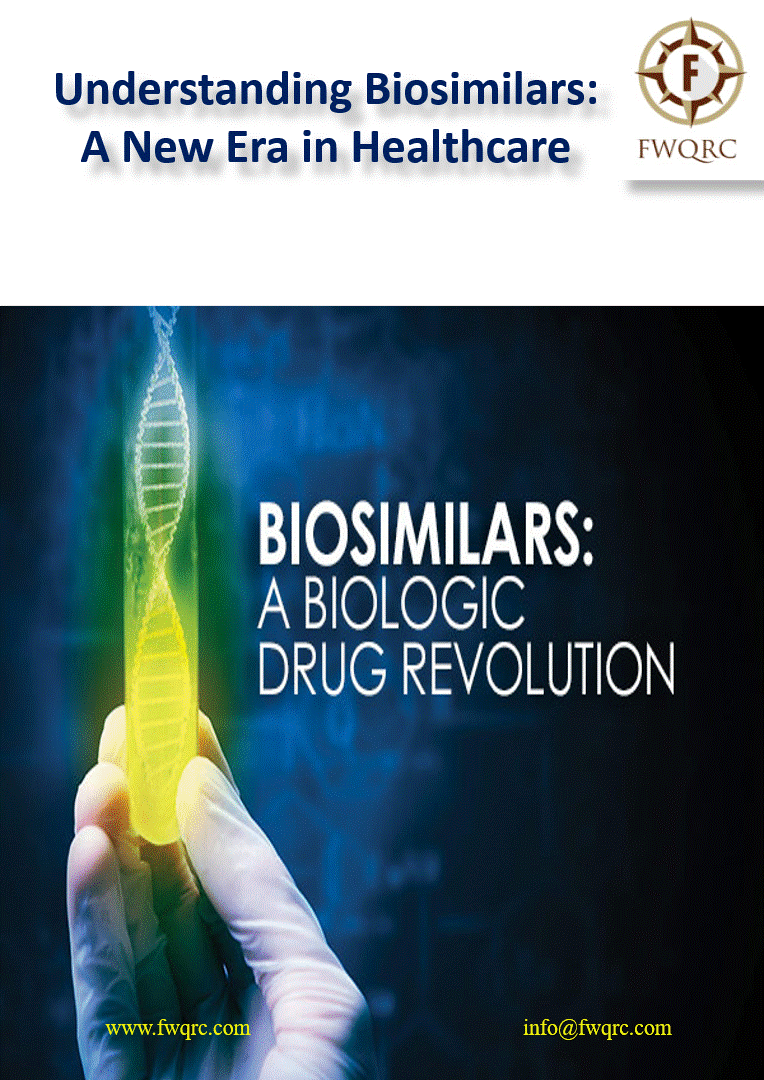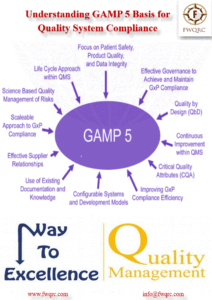Let’s delve into the essential aspects of Good Manufacturing Practices (GMP) for Biosimilar Manufacturing Facilities in alignment with the European Union (EU) GMP guidelines. Additionally, we’ll explore the valuable support provided by FWQRC-GxP & Regulatory Consultant to the medicinal products manufacturing industry.
Introduction
Biosimilars represent a new frontier in healthcare, offering potential benefits in terms of increased access and cost savings. But what exactly are biosimilars, and how do they differ from their reference biologics?
What are Biosimilars?
Biosimilars are biological products that are highly similar to a reference biologic product, with no clinically meaningful differences in terms of safety, purity, and potency. They are not generic versions of biologics, as biologics are complex molecules derived from living cells, making them impossible to replicate exactly.
The Development of Biosimilars
The development process for biosimilars is rigorous and involves demonstrating similarity to the reference product in terms of structure, function, efficacy, and safety. This involves extensive analytical studies, preclinical evaluation, and clinical trials.
The Impact of Biosimilars
The introduction of biosimilars into the market has the potential to increase access to life-saving treatments by offering more affordable alternatives to expensive biologics. This could lead to significant cost savings for healthcare systems and patients.
Regulatory Landscape
Regulatory bodies like the FDA and EMA have established guidelines for the approval of biosimilars, ensuring they meet stringent standards of quality, safety, and efficacy. These guidelines also address issues such as interchangeability and naming conventions.
Challenges and Opportunities
While the potential benefits of biosimilars are significant, there are also challenges to their adoption. These include concerns about interchangeability, physician and patient acceptance, and market competition. However, with ongoing education and regulatory support, the future of biosimilars looks promising.
Conclusion
Biosimilars represent a significant advancement in healthcare, offering the potential for increased access to life-saving treatments and cost savings. As our understanding and acceptance of biosimilars continue to grow, so too will their impact on healthcare
➡ Good Manufacturing Practices (#GMP) for #Biosimilar Manufacturing:
#Regulatory Framework:
✅ EU-GMP sets forth stringent standards for the production of medicinal products, including biosimilars.
✅ The European Medicines Agency (#EMA) plays a pivotal role in harmonizing GMP activities across the #EU.
✅ Biosimilar manufacturers must adhere to GMP principles to ensure product quality, safety, and efficacy.
✅ Compliance with GMP is mandatory for any manufacturer intending to supply biosimilars to the EU market.
➡ Key Principles of GMP for Biosimilars:
#Quality Assurance: Establish robust quality systems to maintain consistent quality.
#Personnel Training: Adequately train staff on GMP requirements, emphasizing safety and hygiene.
#Facility Design and Equipment: Design manufacturing areas to prevent cross-contamination, use closed systems, and employ isolators where necessary.
#Cleaning and Maintenance: Dedicate equipment, use disposable technologies, and ensure ease of cleaning.
#Risk Mitigation: Implement air-locks, pressure cascades, and effective clean-in-place systems.
#Contamination Control: Minimize risks related to recirculation or untreated air.
#Documentation: Maintain accurate records of processes and procedures.
Supporting Medicinal Products Manufacturing Industries by FWQRC-GxP & Regulatory Consultant:
#Consultancy Services: FWQRC-GxP offers expert guidance on GMP compliance, regulatory affairs, and quality management.
#Audits and Inspections: Conduct thorough audits to identify gaps and ensure adherence to GMP standards.
#Quality Systems Implementation: Assist in establishing robust quality systems.
#Training and Workshops: Educate personnel on GMP principles and best practices.
#Risk Assessment and Mitigation: Address risks proactively.
#Regulatory Submissions: Prepare and submit regulatory documentation.
#Continuous Improvement: Foster a culture of quality and continuous enhancement.
In summary, GMP ensures that biosimilars meet the highest quality standards, promoting patient safety and confidence. FWQRC-GxP & Regulatory Consultant plays a vital role in supporting companies to achieve and maintain compliance, ultimately benefiting patients across the EU.
For more information, please write to info@fwrqc.com
#food #drugs #cosmetics #medicaldevices #auditing #gapanalysis #riskassessment #capa #remedialplans #irca #leadauditor #drugsubtances #drugproducts #biotech #biotechnology #biotechindustries #biologics #trendingpost #trendingnow #trendingposts #consultant #pahramaceuticals #qa #qc #qms #ra #reulatorycompliance #regulatoryservices #qualitymanagement




